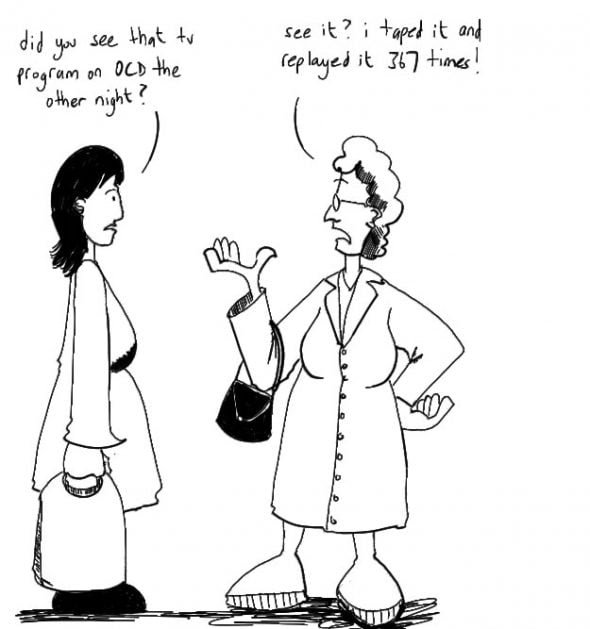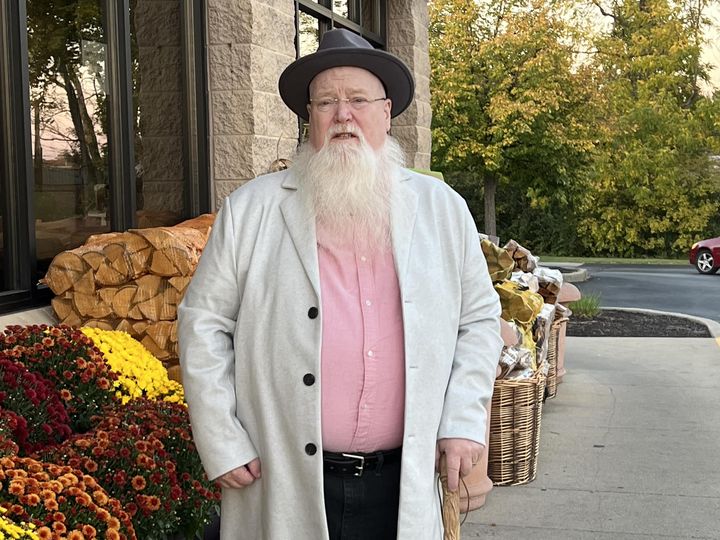
“Bruce, your problem is that you lack contentment.” I was stunned when my counselor told me this in 2019. I had been seeing him for years. I wondered if it is time for a change. (I changed therapists in 2021.) His words seemed sharp and judgmental. I felt as if he was ignoring me as a person and making a character judgment instead. Weeks later, I was still talking about whether this judgment was correct. Polly would say, I’m sure, if asked, “Bruce, you are discontented over contentment.” 🙂 Maybe.
In November 2019, I wrote a post titled, Living with Unrelenting Chronic Pain: Just Another Day in Paradise. I intended to write about contentment then, but the post, as is often the case, went in a different direction from that which I had intended. As that Spirit moves, right? It’s impossible to determine if I am content without first understanding the primary issues that drive my life: chronic illness, chronic pain, loss of career, loss of faith, OCPD, and past emotional trauma. Pulling a singular event out of my life and rendering judgment based on that alone is sure to lead to a faulty conclusion. Think of all the clichés we use about understanding people: walk a mile in their shoes, see things through their eyes, judge not, lest you be judged. If we truly want to understand someone, we must take the time to see, listen, and observe — not something we do much of these days. We live in the social media era, a time when instant judgments are the norm. As a writer, I find it frustrating (and irritating) when people read a post or two and then sit in judgment of my life. In 2,000 or fewer words, I have, supposedly, told them all they need to know about Bruce Gerencser. Of course, I have done no such thing. Want to really get to know me? Sit down, pull up a chair, and let’s break bread together and talk. Truly understanding someone requires time, commitment, and effort. I have been married for forty-five years. It took years for Polly and me to really get to know each other. And even today, I wonder, do I really know all there is to know about my lover and friend? I doubt it.
Contentment. What does the word even mean? Happy? Satisfied? Complacent? How do I determine if I am content? Do I even want to be content? Is contentment a desirable human trait? What would the world look like if everyone were content? The Apostle Paul wrote spoke of contentment several times:
- I have learned, in whatsoever state I am, therewith to be content. (Philippians 4:11)
- But godliness with contentment is great gain. (1 Timothy 6:6)
- And having food and raiment let us be therewith content. (1 Timothy 6:8)
- Be content with such things as ye have: for he hath said, I will never leave theeá, nor forsake thee. (Hebrews 13:5)
“Bruce, you are an atheist. What the Bible says is irrelevant.” Tell my mind that. These verses were pounded into my head by my pastors and Sunday school teachers, and then, as a pastor, I pounded them into the heads of congregants. Just because I say, “I’m an atheist,” doesn’t mean that decades of indoctrination and conditioning magically disappear. I spent most of my adult life trying to be the model of a “contented” Christian. Try as I might, I came up short.
My father was the epitome of “contentment.” Dad lived by the maxim qué será será (whatever will be, will be). He was passive and indifferent toward virtually everything. Dad and I were never close. It’s not that we had a bad relationship; it’s just that he treated his relationship with me the way he treated everything else.
I was much more like my mom. Passionate. Contrary. Opinionated. Everything mattered. It comes as no surprise that I am a perfectionist; that I struggle with obsessive-compulsive personality disorder; that I have high (and often unreasonable) expectations not only for myself, but for others. Ask my children about what they “fondly” call the Gerencser Work Ethic. Oh, the stories they could share. I am sure a few of you are thinking, “are you not admitting here that you are discontented?” Maybe, but I am not convinced that it’s as simple as that — as I shared with my counselor.
You see, I have always been a restless person. Does this mean that I am discontented? Or, perhaps, I am someone who needs a steady diet of new experiences. I bore easily. In my younger years, this resulted in me working a number of different jobs. My resume is quite diverse. The same could be said of the twenty-five years I spent in the ministry. I loved starting new churches. However, over time, these new churches would become old churches, and when that happened, I was ready to move on. I pastored a church in West Unity, Ohio for seven years. Awesome people. Not a problem in the world. Yet, I resigned and moved on. Why? I was bored. I was tired of the same routine Sunday after Sunday. It wasn’t the fault of the people I pastored. I was the one with a restless spirit. I was the one looking for matches and gasoline so I could start a new fire.

My counselor asked me if he could wave a magic wand over me and instantly make me content, would I want him to do so? I quickly replied, “Absolutely not.” I told him that instant contentment would rob me of my passion and drive. “What kind of writer would I be without restlessness and passion?” I asked. He replied, “ah yes, that which drives creatives.” If being content requires me to surrender my passion and drive, no thanks. I am not interested. Now, I can certainly see where I would be better off if I, at times, let go and let Loki. I have never been good at “be still and know that I am God.” I like being busy. I enjoy “doing.” One of the frustrating problems I face with having fibromyalgia, gastroparesis, and osteoarthritis is that I can no longer do the things I want to do. My “spirit” is willing, but my “flesh” is weak. Does this lead to discontentment? Maybe, but I am more inclined to think that the inability to do what I want leads to frustration and anger, not discontentment.
I’ll leave it to others to determine if I am content. I will leave it to the people who look at me and “read” my face, thinking my lack of a smile is a sure sign of discontentment; as if there couldn’t be any other explanation for my facial expressions — you know, such as chronic, unrelenting pain. Would it settle the contentment question if I tell people that I am generally happy; that I enjoy writing and spending time with Polly and our six children and thirteen grandchildren? I doubt it. Much like my counselor, people seize on anecdotal stories as evidence for their judgments of my life. I told my counselor about a visit to a new upscale pizza place in Defiance. I told him that the waitstaff left a lot to be desired, and our pizzas were burnt on the bottom (the restaurant uses a brick pizza oven). I told our server the pizzas were burnt. The manager gave us a 50 percent discount on our bill. My counselor seized on this story as a good example of my discontentment. Never mind the fact that I rarely complain about the quality of restaurant food. I just don’t do it. I am willing to give a place a pass; having managed restaurants myself. I know how things can get messed up. That said, I always wanted to know when an order didn’t meet customer expectations. No, customers are not always right. Some of them are idiots and assholes. But I couldn’t make things right if complaints never reach my ears.
Am I content? Probably not, but I sure as hell don’t want the kind of contentment preached by the Apostle Paul, modeled by my father, and suggested by my counselor. No thanks . . . I’ll take happiness with a slice of restlessness, and garnished with passion every time.
Bruce Gerencser, 68, lives in rural Northwest Ohio with his wife of 47 years. He and his wife have six grown children and sixteen grandchildren. Bruce pastored Evangelical churches for twenty-five years in Ohio, Texas, and Michigan. Bruce left the ministry in 2005, and in 2008 he left Christianity. Bruce is now a humanist and an atheist.
Your comments are welcome and appreciated. All first-time comments are moderated. Please read the commenting rules before commenting.
You can email Bruce via the Contact Form.








